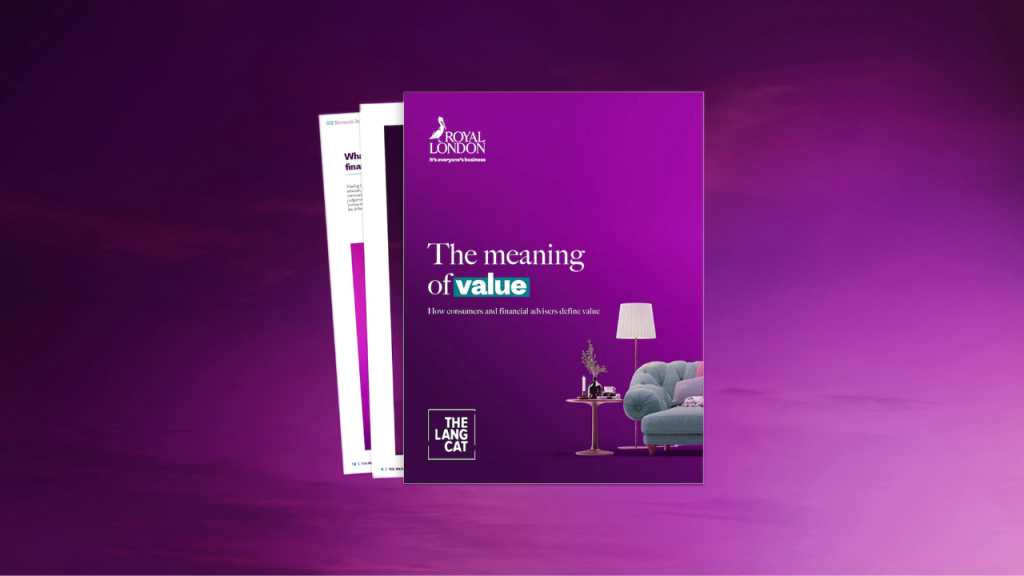Price is what you pay, value is what you get.
This is one of the more frequently quoted Warren Buffett phrases, and it forms the basis of the Meaning of Value research we’ve recently conducted on behalf of Royal London. We’ll return to the first part of that equation later, but in the first instance, let’s focus on value.
Value is subjective, and in context to the product or service you are purchasing. People will make different value judgements for different products or services on a daily basis. Most importantly, it is the end consumer who decides whether something is of value to them or not. You can help people make this decision, but you can’t tell people how to think.
This is all well and good, but for financial services firms, Consumer Duty introduced a new regulatory requirement to ensure your products and/or services represent fair value.
While the consumer remains the ultimate arbitrator, all firms need to make an assessment as to what clients and customers want and need. It is the firm’s responsibility to build products or services that not only meet these needs, but also represent fair value.
Price will be a factor here, but not the sole factor. Other aspects such as level of service and quality of communications will also come into play.
So for our research we wanted to understand what consumers value from advice, and also how satisfied they are. The below chart shows the results of this exercise.
The aspects listed are those that consumers who have paid for advice tell us are important to them. And for every single one of these, we can see a year-on-year improvement from what was already a healthy position.

Overall levels of satisfaction are equally positive.
Some 74% of consumers who have paid for advice in the last two years report good to high levels of satisfaction with the core service offered by their adviser.
When we ask consumers specifically about value for money this sentiment has increased by more than a fifth, moving from 54% in the 2023 study to 66% where consumers awarding seven or above out of 10. And 77% of consumers say the advice met or exceeded their expectations.
Whatever way you look at it, the results are hugely positive. This is a strong endorsement of the value advisers are delivering to their clients.
What about price and costs?
Even with value of advice aspects scoring as highly as this, it is possible (at least theoretically) to destroy all value if the costs are too high.
These sorts of self-defeating transactions have long been highlighted by the regulator as very poor practice. The FCA’s Conduct of Business Sourcebook (COBS) contained guidance to this effect long before Consumer Duty was implemented.
When it comes to our research, our findings suggest adviser fee models are evolving post-Consumer Duty, with an increased use of capped or fixed fees.
Consumer understanding of these fees is reasonably healthy, with an average score of 7.3 (on a scale of 1-10) when we asked consumers whether they understood the fees they are paying.
Some 81% of consumers who have paid for advice are satisfied with the level of fees they are paying, but this falls to 74% for the over 55 age bracket. Considering the importance of this demographic to most advice firms, this is perhaps one area for improvement.
But ultimately this is a positive message.
There is a lot of focus on the value of advice, but every time we ask these questions to the most important people in this debate (the end client), the answers are increasingly positive.
The moral of the story? Advice is of value, and people who pay for it are increasingly satisfied.
Mike Barrett is consulting director at the lang cat

This report is free to download thanks to the generosity of Royal London. Download the report here





